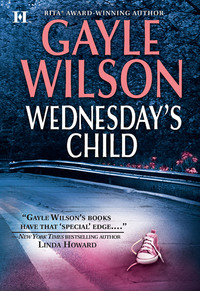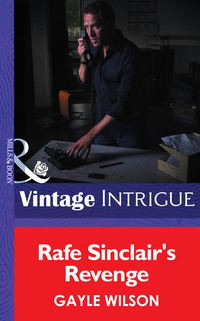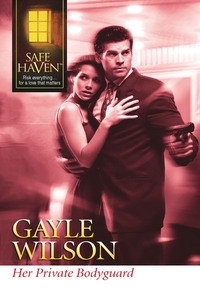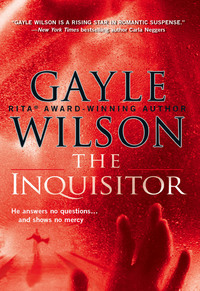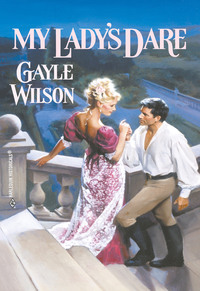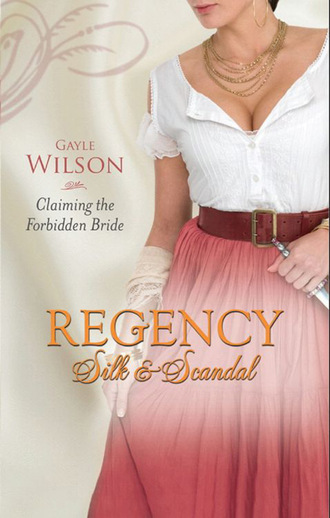
Полная версия
Claiming the Forbidden Bride
Nadya had almost nodded permission before she began to wonder why the girl was in such a hurry to be away. Her earlier anxiety resurfaced, causing her to pry her daughter’s fingers from her skirt so that she could get a good look at the little girl’s face.
The smudges on Angeline’s dress and her disordered hair didn’t concern her. Released from the confines of the camp, her daughter tended to run wild through the fields that lay just beyond the great forest. Perhapsshe’d fallen, and Anis was afraid she would be blamed for the accident.
‘Did something happen during your walk?’
The older girl’s downcast eyes flew upward. Her mouth opened and then closed, but eventually she shook her head.
‘Then why are you lying to the drabarni?’
Until her grandmother’s question, Nadya hadn’t realized Magda was listening to this. She knew the old woman would be angry to have her bargaining interrupted. Still, Magda had grown to love her great-granddaughter with a fervour that almost matched Nadya’s own.
‘You think she’s lying?’ Alerted by her grandmother’s observation, Nadya examined the girl’s face.
Anis’s gaze darted from one to the other, but it was Magda she answered, as befitted the old woman’s esteemed position in the tribe. ‘Nothing happened. I swear it, chivani.’
‘Be careful what you swear to, little one. Tell the truth, and I’ll see to it that no blame comes to you.’
‘Don’t make promises you can’t keep,’ Nadya warned, kneeling to examine her daughter more carefully.
By now she had recognized that her grandmother was right. For some reason the girl who’d been instructed to look after Angeline was lying.
As Nadya put her hands on her daughter’s shoulders, what she had failed to notice earlier became apparent. The child’s clothing was damp.
‘Why is this wet?’ she demanded.
Anis licked her lips. Her eyes moved again to Magda. Whatever warning or promise of succour she saw there convinced her to tell the truth. ‘Because she fell into the water.’
For a moment, the words made no sense. The only stream within walking distance ran through the small gorge it had cut into the chalk cliffs.
‘Fell? How could she possibly fall into the water?’ Even as she posed the question, Nadya’s hands were busy feeling along her daughter’s small, delicate body, searching for injuries.
When she raised her gaze again, reassured that the child was apparently undamaged, despite her misadventure, the older girl had begun to cry, tears coursing down her reddened cheeks.
‘I asked how she fell.’
‘She started running, drabarni. Across the meadow. I couldn’t catch her. I tried, chivani,’ she added, pleading her case now to Magda. ‘I didn’t think about the stream. I didn’t think she could run that far.’
‘And she just ran to the cliff edge and fell off?’
The girl hesitated, but her eyes had returned to Nadya’s face. Finally she nodded.
Relieved that what could have been a terrible tragedy seemed to have ended with no ill effects, Nadya pulled her daughter close, once more made aware of the state of her garments. She rose, intending to carry the little girl to her caravan to get her into something dry.
‘And you pulled her out?’ Magda’s tone was of interest only and not the least accusatory. ‘How very brave of you. Perhaps I should give you a reward for taking such good care of my chaveske chei.’
The older girl’s head moved slowly from side to side. Her eyes never left Magda’s, mesmerized by the old woman’s tone as the cobra is fascinated by the music of the snake charmer.
‘No?’ Magda asked kindly. ‘You don’t deserve a reward?’
The side-to-side motion was repeated.
‘Because someone else pulled her from the water,’ Magda suggested softly. ‘Isn’t that the truth of this?’
The answer was clear in the girl’s eyes even before she nodded. Although she was celebrated for her fortune-telling abilities, Nadya knew that whatever gift Magda had been born with was augmented by a keen understanding of human nature. She had read the truth behind the girl’s lies as if it had been written in a book.
‘Who?’ Nadya demanded.
As if she had been following the conversation, Angeline took her mother’s hand and pulled, urging her to go with her. The wide blue eyes shifted from Nadya’s face to the line of beeches from which the two girls had emerged.
Then, with her free hand, the child made the first sign Nadya had ever taught her. The one that carried the strongest possible warning she could ever have given her daughter.
Gadje. The word used to indicate anyone not Romany.
Nadya’s eyes met her grandmother’s. The old woman lifted her brows as if to ask, ‘What will you do now?’
‘Did you see him? The gaujo?’ Even as Nadya questioned the older girl, Angeline tugged at her hand, trying to draw her toward the woods.
‘She didn’t want to leave him. She made us stay by him all afternoon,’ Anis said, ‘but he was too heavy to move.’
As Nadya struggled to make sense of the words, she realized that she was dealing with someone who was little more than a child herself. Someone into whose care she had foolishly trusted her daughter.
‘Are you saying that the man who saved Angel was injured? And you left him there?’
‘I tried to wake him, drabarni.’ The girl scrubbed at her tear-stained cheeks with grubby knuckles. ‘But it was late. I knew we should get back or you’d be angry.’
‘So you left him.’
‘He’s gadje,’ the child said dismissively. ‘Let them look after him.’
‘What if he’d said that about Angel?’
‘But drabarni, she’s…’ The words the girl had been about to offer in her own defence died unspoken.
‘Can you take me to him?’
Looking after this gaujo wasn’t a responsibility Nadya wanted. Nor was it one she would ever have sought, despite her skills.
Whatever else the injured man was, however, he was apparently Angeline’s saviour. Seeing to his safety was an obligation she couldn’t refuse. Not according to tribal law.
Or, she acknowledged, her own sense of right and wrong.
Chapter Two

Darkness had fallen before they reached the escarpment where Angeline had fallen. Under Nadya’s direction, the men of the tribe had come prepared for that eventuality. Their hand-held torches led the way for the small procession that followed them down the steep slope to the stream.
The light, horse-drawn cart they had brought to carry the gaujo, living or dead, back to camp had been left at the top. Under Nadya’s watchful eye, they searched the bank of the stream, softly calling directions to one another in the stillness of the sleeping countryside.
Angeline had refused to be left behind. She’dscreamed uncontrollably, seemingly inconsolable, until Nadya had relented. Now she huddled against her mother’s skirts, eyes wide as she watched the searchers.
Anis, who had been brought to give directions, stood off to one side. She seemed reluctant to get near enough to Nadya to chance the punishment the girl still feared would be inflicted.
Although she had been angry at first, by now Nadya had acknowledged that what happened wasn’t Anis’s fault. The responsibility for this near disaster lay squarely on her shoulders for trusting someone else to look after her daughter. That was her job—her joy—and the thought of what might have happened…
‘We found him, drabarni.’
The shout prevented her from having to acknowledge that terrible what-might-have-been. Taking Angel’s hand, she hurried to the place where the men were gathered around something on the ground. Sparks from their torches swirled in the wind.
‘Is he alive?’ Her voice sounded tremulous in her own ears.
‘For now. Whether he’ll stay that way…’The shrug that accompanied Andrash’s comment seemed as heartless as the flash of his white teeth revealed by the torchlight. What did he care about a gaujo, even one who’d saved the life of a little girl?
‘What do you want us to do with him?’ Nicolaus asked as four of them hefted the man’s limp bodybetween them, carrying it as they would have a boar they’d killed in the forest.
Although her grandmother would disapprove, Nadya knew there was only one answer. ‘Take him to my caravan.’
Her instructions didn’t cause even a raised brow among the men. After all, that’s where she had cared for Nicolaus when he’d broken his arm and where she had stitched up the knife wound in Michael’s shoulder.
The vardo was also where she kept all of her remedies. At least until she knew what she was dealing with, it was the only possible place for the injured gaujo.
As the men passed by, Panuel leading the way with two of the torches, Nadya caught a glimpse of the face of the man they carried. The flickering firelight seemed to emphasize his features: high cheekbones, reddened now with the cold; an almost roman nose; and an equally strong chin. She found herself wondering about the colour of his eyes and his hair, darkened now by the water.
As the small cavalcade began to struggle up the slope, a tug on her skirt brought Nadya’s gaze down to her daughter, who was standing at her knee. The tear tracks beneath her eyes were exposed by the same torchlight that had illuminated the injured man’s countenance.
Nadya smiled at the little girl as she nodded reassurance. Then, unable to resist the impulse, despite the child’s disobedience to Anis and the tantrum she’dthrown at the threat of being left behind, Nadya bent and put one arm around the small shoulders, pulling Angel close.
‘It’s all right,’ she said aloud. With the thumb of her other hand she made a soothing gesture along the child’s cheek. ‘We’ll fix him.’ Leaning back, Nadya added another smile to the words her daughter couldn’t hear.
With the reassurance of her mother’s touch, the concern in the blue eyes melted away. Their focus shifted to the older girl. Seeing the direction of her daughter’s gaze, Nadya tilted her chin upward, giving permission.
The child ran to where Anis stood, her arms wrapped tightly around her thin body. Angeline tugged at the older girl’s hand until she bent down. Then the child drew her tiny thumb along Anis’s cheek, repeating the gesture her mother had made.
As she watched the scene, a reluctant smile tugged at Nadya’s lips. Whatever heartache this little one had known, it was clear all was now right in her world.
And thanks to the actions of the unknown gaujo, in Nadya’s as well.
She owed her daughter’s life to the man being carried up the slope to the waiting cart. Whatever she had to do in order to satisfy that debt, she vowed it would be paid.
When the men had deposited the gaujo on the bed at the front of the caravan, they stood in its narrow aisle, awaiting Nadya’s instructions. If she asked them, they would remove his wet clothing, but she found that, despite the shivers that now occasionally racked his body, she would rather do all that herself.
There was little room in her profession for prudishness. Not when lives were at stake. That was the first thing her paternal grandmother, who had been drabarni before her, had taught her. The mysteries of the human body. All of them.
‘Thank you,’ she said to the men without looking up.
‘You want us to help you undress him, drabarni?’
‘I’m not sure how badly he’s injured. Maybe it would be better if I determine that first.’
‘As you wish, drabarni. Call us when you need us.’
She had asked Anis to take Angeline to Magda for the night, so that, as the last of her helpers exited her caravan, she found herself alone with the Englishman. She bent over the platform bed she had converted for her patients’ use from what had once been her father’s workbench.
Thom Argentari had been a silversmith of great renown, even in the world of the gadje. He had bought this caravan from a travelling showman in order to have a safe place to keep his tools and the precious gemstones and metals with which he worked. At his death, the vardo had passed to Nadya.
As soon as she’d entered tonight, she had lit the lamp that provided light for the front of the caravan. Now, as she moved it to the table at the head of the bed, her initial impression of the injured man’s features was verified.
The gaujo would be considered handsome by any standards. Even, she acknowledged, her too exacting ones.
Dismissing that evaluation from her mind, she gently turned his face into the lamplight, examining it for injuries. She found what she had expected, given his prolonged unconsciousness, above his left temple. The gash no longer bled, but with a blow to the head, she knew that whatever was going on beneath the skin was often more serious than what was visible.
Carefully, using only the sensitive tips of her fingers, she felt the area around the cut. Then, using the same method, she traced over the rest of his skull, searching for the telltale signs of fracture as her grandmother had taught her.
When she straightened, this part of her examination complete, it was with a sense of relief. She had felt no breaks in the bone that protected the brain. As for his continuing unconsciousness.
She shook her head, still puzzled by that. Then she directed the same careful attention she’d given his head to the rest of his body. She felt along his torso and then down each extremity, looking for damage, which her experienced fingers would quickly identify. Once more she discovered nothing.
Now she sat down on the edge of the bed besideher patient. She struggled a moment to understand the intricate folds of the knotted cloth at his neck, but was soon able to pull it free. When she had, she pushed aside the edges of his shirt to expose his throat.
She placed her fingers against the pulse in his neck, reassured by its strong and steady beat. After a moment, she raised her hand to put the back of it against his forehead.
The heat she found there confirmed her suspicions. Since she had found no other injury that would explain his condition, the gaujo was obviously developing a fever, undoubtedly the result of exposure after his immersion in the icy water.
As she began to take off the rest of his garments, she tamped down a renewed sense of outrage at the girl who had left him, injured and alone, on its banks. Quickly discovering the impossibility of removing his coat, given the fashionable snugness of its fit, she briefly considered sending for her helpers. Instead, in the interest of efficiency, she used the tip of a knife to slit the seams, removing it in pieces and then the waistcoat.
She decided that, with its looser fit, she should be able to take off his shirt by slitting it from the deep neck opening to the hem. Once that was done, she eased his right arm from its sleeve by the simple expedient of rolling his body slightly toward the front of the bed as she’d worked the material off.
That accomplished, she slipped her arm under his left shoulder in order to push his torso in the opposite direction, which would then allow her to remove the other sleeve. As soon as she applied pressure, he moaned, the sound low and anguished, as inarticulate as an animal in pain.
Startled, Nadya glanced up to find his eyes were still closed. Perhaps this shoulder had been dislocated when he’d jumped into the water. That could be remedied easily enough, although she would have to call the men back in to hold him while she manipulated the joint into place.
She eased him down against the bed and then pushed aside his shirt. As soon as she did, she realized the injury that had caused him to cry out in pain had been inflicted long before his rescue of Angeline. Hardened by years of dealing with the variety of wounds and accidents suffered by members of the tribe, she was still shocked by the extent of the scarring. Was it possible he still had the use of his arm after such damage?
She pushed his sleeve upward, revealing that the muscle in both the lower and upper arm appeared almost normal. Despite whatever had happened to him, the limb hadn’t atrophied. Manipulating his shoulder more carefully now, she managed to remove the shirt without provoking any other outcry.
As she tucked a dry blanket around her patient, she bent to take another look at the cut on his head. There was still no swelling, and the clot seemed to be holding.
Other than that, she had found no evidence of new injuries. In an older person, she might suspect an inflammation of the lungs. In someone his age, who seemed to be in relatively good physical condition, that seemed unlikely.
All she could do tonight was watch over him. If his fever increased, there were remedies for that, even if she was unsure of its cause.
In her very limited experience with prolonged unconsciousness, there were only two possible outcomes. He would wake up on his own, his faculties intact. If he didn’t, eventually he would die. And despite all her grandmother’s careful teaching, Nadya knew of nothing that could tip the scales toward the more favourable outcome.
As she had expected, due to the rapid onset of symptoms, her patient’s fever began to climb during the night. She knew that her English colleagues, with the advantage of their medical degrees, would at this point begin a very rigidly proscribed course of treatment. The patient would be bled and then blistered. If the fever did not abate, both remedies would be repeated until it did. Or until he died.
Nadya instituted instead a regimen she had learned from her grandmother. She’d had the men remove the rest of his clothing, and then, despite the night chill, she pulled the blankets they had put over the Englishman down to his waist. Using a cloth dipped into a basin of water drawn from the barrel that served as the camp’s cistern, she bathed his face, neck and torso.
At first, his shivering had increased, so strongly that at one point his teeth rattled with the strength of the tremors. He tossed and turned, as if trying to escape the discomfort of what she was doing, but she persisted.
On the morning of the third day, when the congestion of the lungs she feared had not materialized, she added another of her grandmother’s remedies to the treatment. With endless patience she dribbled tea brewed from her small supply of a dried bark, supposedly acquired from some medicinal tree in Peru, between his parched lips.
At some point during her vigil, the Englishman’s inarticulate noises had become words. Uttered in the throes of delirium, they made no sense to Nadya, but she listened as he called names and issued directives to the phantoms he seemed to believe had gathered around his bed.
Finally, near dawn on the sixth day, her efforts were rewarded by the formation of a dew of perspiration along his upper lip. Exhausted, unable to remember the last time she had eaten a complete meal or slept for more than a few restless hours, Nadya discarded her basin and cloth as the rays of the sun crept steadily into the caravan.
She sat down on the low stool beside her patient’s bed and laid the back of her hand against the gaujo’sbrow, which was as cool as her own. Now that the fever was broken, his body would attempt to heal itself through sleep. Not the restless, fever-induced unconsciousness of the last few days, but a restorative rest that would almost certainly last for several hours.
Since it was safe to leave him, she would ask Magda or one of the other women to sit with him. She needed something to eat. And after she’d seen Angel, a few blessed hours of uninterrupted sleep for herself.
Rhys opened his eyes and then quickly closed them against the light that had seemed to stab through them, like a knife thrust into his brain. On some level, he realized that he had been aware of the agony in his head for a long time. Finally, its persistence had dragged him from sleep.
He had a vague memory of being carried from the field, but he couldn’t think what battle they’d been engaged in. As adjutant, he should certainly know, but in spite of his struggle to remember, there was nothing about any of that left in his consciousness.
Perhaps that was because there was room there for nothing but pain. And a thirst so profound it was almost worse than the other.
He tried to swallow, but his mouth was too dry. Even in the makeshift field hospitals set up near the lines, someone always brought water to those awaiting treatment. If he could only make them aware of his need.
He dragged leaden eyelids upward again, but more cautiously this time. Through the slits he allowed, he saw that what he had avoided before was a single candle. And that its light was not bright at all.
He turned his head, trying to locate one of the orderlies or even a surgeon. A shard of the previous agony sliced through his skull.
He clenched his lips against the resultant wave of nausea, one so severe it threatened his determination never to move again. Hardly daring to breathe, he willed himself not to be sick.
He tried to think of something—anything—other than the overwhelming urge to vomit. And finally, in his travail, realized that in the split second his eyes had been open, some still-functioning part of his brain had recognized that, wherever he was, it was like no hospital he’d ever seen.
And like nowhere else he’d ever been.
Curiosity engendered by that realization was almost enough to quell his roiling stomach. His eyelids again opened a slit, and for the third time, he peered out between his lashes.
The light was definitely a candle. It had been pushed into a twisted holder made of some unidentifiable metal, blackened with age or use.
Beyond was a blur of colour, reds and golds predominating. He turned his head another fraction of an inch in an attempt to bring his surroundings into better focus.
The wall opposite where he lay was so close that, if he had had the strength, he could probably have stretched out his arm and touched it. And every inch of it, from floor to ceiling, was crowded with objects.
He allowed his gaze to follow their upward climb, trying to identify what was there. Baskets, woven of vine and stacked full of what appeared to be dried roots. Earthenware crocks, their tops sealed with wax. Glass jars whose contents were indistinguishable, dark and strangely shaped. And sitting incongruously in the middle of what he had now realized were a series of shelves was a rag doll, exactly like those sold in every penny shop in England.
England.
He was no longer in Spain, he knew with a flash of clarity. He hadn’t been for months.
If that were true.
He raised his right hand to touch his face. Clean-shaven. Which must mean he’d been here—wherever here was—only a short time.
His gaze came back to the table. A measuring cup and a small medicine bottle stood near its edge.
A memory swam to the surface of his consciousness. A pair of long, slender fingers had poured out a measure of the liquid the bottle contained. Then a hand had slipped behind his head, raising it enough to allow him to swallow the dose. He tried desperately to retrieve the image of the face of the person who had administered the medication, butthe only thing he could remember after that was the same searing pain he had experienced a few minutes ago.
He closed his eyes, releasing the breath he’d been holding in a long, slow sigh. Something moved against his leg. He opened his eyes to see what and realized gratefully that the pain in his head was less than before.
A little girl, perhaps four or five, stood beside his bed. Her eyes, the exact colour of the hyacinths that bloomed in his sister-in-law’s garden, were surrounded by long, nearly colourless lashes. In contrast, the unbound hair that framed her face seemed almost golden in the candlelight.


